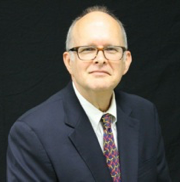February 2020 – This Month in Sacramento
THIS MONTH IN SACRAMENTO – FEBRUARY 2020 NEWSLETTER
Legislative Update
by Richard Markuson
Region 9 Legislative Advocate

The Legislature reconvened in its last year of the two-year session on January 6. January was a busy month with only a few two-year bills moving out of their house of origin by January 31.
New Reports of Interest
The UC Berkeley Center for Law, Energy & the Environment released Electric Vehicles and Global Urban Adoption: Policy Solutions from France and California. While California and France have been two worldwide leaders in policy supports for electric vehicle adoption, there remains a large unmet need in access to battery electric vehicles. During a two-day symposium in June of this year, experts from California and France met to discuss the lessons learned thus far and consider the remaining challenges to EV adoption. The results of that discussion are now available as a Symposium Brief.
The Assembly Jobs, Economic Development, and the Economy Committee has distributed a report, “By the Numbers: Jeopardizing the National Benefits of Trade through America’s Busiest Port Complex,” conducted by economic consulting firm BST Associates for the Port of Los Angeles, which outlines the impact of tariffs on trade through the ports of Los Angeles and Long Beach for 2018, finds that “tariffs threaten nearly 1.5 million U.S. jobs and more than $186 billion of economic activity nationwide.”
Public Policy Institute of California released its report, “A Path Forward for California’s Freshwater Ecosystems,” finds “they are changing in undesirable ways” due to “water and land use, pollution, introduction of nonnative species and a changing climate;” recommends that California “adopt the principles and practices of ecosystem-based management,” which are “transparent, collaborative and supported by science and secure funding.”
The Legislative Analyst released “Fiscal Perspectives: Tempered Expectations,” brings “California’s current fiscal position into perspective,” says general fund is on track for a $7 billion surplus made up of “$3 billion in ongoing and $4 billion in one-time components,” recommends “budgeting no more than about $1 billion of it to new ongoing commitments,” cites possibilities of a recession and changes in federal policy as reasons for not committing all $3 billion to new ongoing spending.
The Legislative Analyst’s Office released “Preparing for Rising Seas: How the State Can Help Support Local Coastal Adaptation Efforts,” finds “California’s coastline could experience as much as seven feet of sea level rise by 2100,” recommends “making state contributions to support planning efforts and project implementation at both a local and regional scale, as well as establishing a statewide network for providing technical assistance and information on effective climate change adaptation practices.”
Caltrans released 2019 Advance Mitigation Program Biennial Report on its efforts since 2017 to accelerate delivery of projects by “proactively obtaining environmental mitigation in advance of – rather than during – transportation projects,” says “Department is in the process of integrating the work plan into Caltrans’ planning and project delivery organizational infrastructure, with completion targeted for the end of the 2019 calendar year.”
Governor’s Appointments
Meredith Williams of San Francisco has been appointed director of the Department of Toxic Substances Control, where she has served as acting director since 2019 and as deputy director of safer products and workplace programs since 2013. Williams held several positions at the San Francisco Estuary Institute – Aquatic Science Center from 2006 to 2013, including interim executive director, deputy director, program director of the environmental data, information and technology program and senior project manager. She held various positions at Applied Materials from 1995 to 2005, including, business operations manager, product manager, new product development manager and senior process engineer. She was a senior research physicist at 3M from 1994 to 1995. Williams earned a Doctor of Philosophy degree in physics from North Carolina State University.
